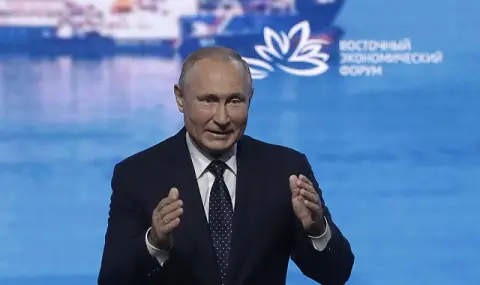Russian President Vladimir Putin is again trying to present the current Ukrainian government as illegitimate to participate in peace talks. Putin repeated the Kremlin's already familiar thesis during his visit to the command post of a Russian submarine in the Murmansk region on March 27. "Nazis" and people with "neo-Nazi views" have significant influence in the Ukrainian government, "neo-Nazi groups" have "real power in their hands" in Ukraine, he said.
This is what the Institute for the Study of War (ISW) writes.
Ukraine did not hold presidential elections in 2024, therefore, for Moscow, all Ukrainian civilian authorities are illegitimate, since the president appoints regional officials. However, the Ukrainian constitution explicitly prohibits elections during periods of martial law.
ISW has previously noted that the Kremlin’s continued efforts to characterize the Ukrainian government as an illegitimate negotiating partner cast serious doubt on the Kremlin’s willingness to negotiate in good faith to settle the war and set information conditions for Russia to violate any agreement reached on the grounds that the Ukrainian government had no legal right to conclude it.
Putin reiterated his demand to eliminate the "root causes" of the war in Ukraine as a precondition for a peace agreement - a reference to Russia’s initial military demands that directly contradict efforts by the United States, Europe and Ukraine to achieve a just and sustainable resolution to the war. Putin said Russia was determined to end the war in Ukraine, but only if the peace agreement addressed the "root causes" for the war.
Senior Russian officials have repeatedly identified these root causes as NATO's alleged violation of its obligations not to expand eastward and Ukraine's alleged violations of the rights of Russian-speaking minorities in Ukraine.
The Kremlin's demands to address these so-called "root causes" amount to a demand for a complete Ukrainian surrender with the establishment of a pro-Russian government in Ukraine and commitments to Ukrainian neutrality - the same demands Putin has been making since before the war.
Putin is trying to push a new demand. He has suggested that the UN, the US and European countries establish an interim administration in Ukraine that would hold democratic elections to bring to power "a viable government that enjoys the trust of the people.".
Putin has said that an interim Ukrainian government would allow Russia to "start negotiations with the new Ukrainian administration on a peace treaty" and "to sign legal documents that will be recognized around the world". White House National Security Council spokesman James Hewitt correctly rejected the proposal, stating that the Ukrainian constitution and the Ukrainian people determine the government in Ukraine.
UN Secretary-General Antonio Guterres also rejected the proposal, stating that Ukraine has a legitimate government that must be respected.
Putin's new demand for an interim government in Ukraine as a prerequisite for peace talks shows how the Kremlin continues to hold the talks hostage and is trying to extract further concessions from the West after progress made in the ongoing ceasefire talks. ISW continues to assess that the Kremlin remains committed to its goal of extending any negotiations for a temporary ceasefire on the front or a permanent peace agreement in order to continue making incremental gains on the battlefield and create favorable conditions for pursuing Ukraine’s full surrender.
The Kremlin appears to be renewing its efforts to reorganize Russia’s five marine brigades into divisions. Russian President Vladimir Putin announced on March 28 that the Russian General Staff had approved a program to reorganize the Russian Marine Corps from brigades into divisions.
Putin stated that two brigades, including the 155th Marine Brigade (Pacific Fleet), would become divisions in 2025, that two more brigades would become divisions in 2026, and that the final brigade would become a division in 2027. Putin also appointed the commander of the 155th Marine Brigade, Major General Mikhail Gudkov, as deputy commander of the Russian Navy on March 28. There are currently five marine brigades in the Russian army: the 40th and 155th Marine Brigades of the Pacific Fleet, the 336th Marine Brigade of the Baltic Fleet, the 61st Marine Brigade of the Northern Fleet, and the Black Sea Fleet's 810th Marine Brigade.
Former Russian Defense Minister Sergei Shoigu announced in December 2022 that Russia intends to form 17 new maneuver divisions, including the expansion of five existing marine brigades into five divisions.
In January 2023, he stated that Russia would form only 12 new ones by 2026, but did not mention the five marine formations. Putin appears to be renewing these efforts, meaning that Russia has likely been working on forming 17 maneuver divisions for several years.
